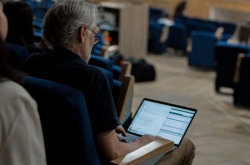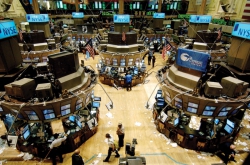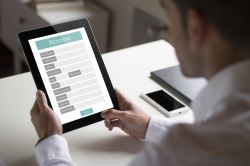Information Society and Technology Week
At the core of the Information Society and Technology Week is the Internet and Modern Society Conference (IMS), which has been held in St. Petersburg since 1998. This conference is devoted to recent research in various fields concerning information society, from information systems, electronic libraries and new media to e-health, cyberpsychology, and e-government. The conference hosts a range of symposiums, workshops, panel discussions, etc.
The Digital Transformation & Global Society Conference (DTGS) is yet another event that will take place within the Information Society and Technology Week. The conference is organized by ITMO University and the Higher School of Economics (St. Petersburg). DTGS also covers a wide range of issues in various fields, such as social informatics, e-government, digital culture, smart cities, urban planning, political communication, new media and others.
“The IMS conference, which is being held for the twenty-first time, has gone through several important stages. If at the outset, technical issues, such as providing Internet connection, were discussed at the conference, now the main focus lies on social aspects of the development of the global network,” says Andrey Chugunov, head of the E-Governance Center.
Key features
According to Andrey Chugunov, the main purpose of this project is to create an environment for intercultural communication and collaboration between scientists working in different fields. The program of the conference includes sessions for specialists in the fields of law, e-government, education, linguistics, psychology, etc. For example, the workshop “Culture and technologies. Communication culture in the digital age” focuses on how information technologies can help us preserve cultural heritage and how cultural heritage can be presented with the use of modern technologies.
Separate sessions will be dedicated to e-learning, distance learning technologies and e-government. On the final day of the event, two international workshops will be held, on Cyberpsychology and Computer Linguistics.
DTGS program also includes a poster session. The reviewed reports will be published in the Communications in Computer and Information Science (CCIS).
A total of 200 papers were submitted to the conference this year (compared to 134 last year); 76 papers will be published. Scientists from more than 20 countries, including the US, Australia, the UK, Portugal and Germany, applied to the conference.
Russian-speaking participants have an opportunity to present their projects in English (DTGS) or in Russian (IMS). Since these two conferences are held in parallel, scientists can take part in both.
Key speakers
Stephen Coleman, a Professor of Political Science at the University of Leeds, a leading theorist in the field of e-democracy and new media will be one of the main speakers. Stephen Coleman is involved in research on e-democracy and public discussions on the Internet. He was first to launch online-consultations with citizens in the British Parliament, and also conducted lectures on media communications at the London School of Economics and Political Science.
In 2017, his book “Can the Internet Strengthen Democracy?” was published. This year, it was translated into Russian and will be soon translated into Chinese.
“Stephen Coleman is one of the leading experts in the field of e-democracy. And we consider ourselves very lucky to have him here, as a speaker”, says Yuriy Misnikov, a research associate at the E-Governance Center. “Mr. Coleman’s report will revolve around his new book “Can the Internet Strengthen Democracy?”, which has already received high praise. This is a scientific publication, but I think that it can be interesting for both specialists in the field and ordinary people. It is not only about the Internet and democracy, but also some fundamental questions. I think that Mr. Coleman’s report will help participants to discuss some urgent questions as well as learn something new”.





